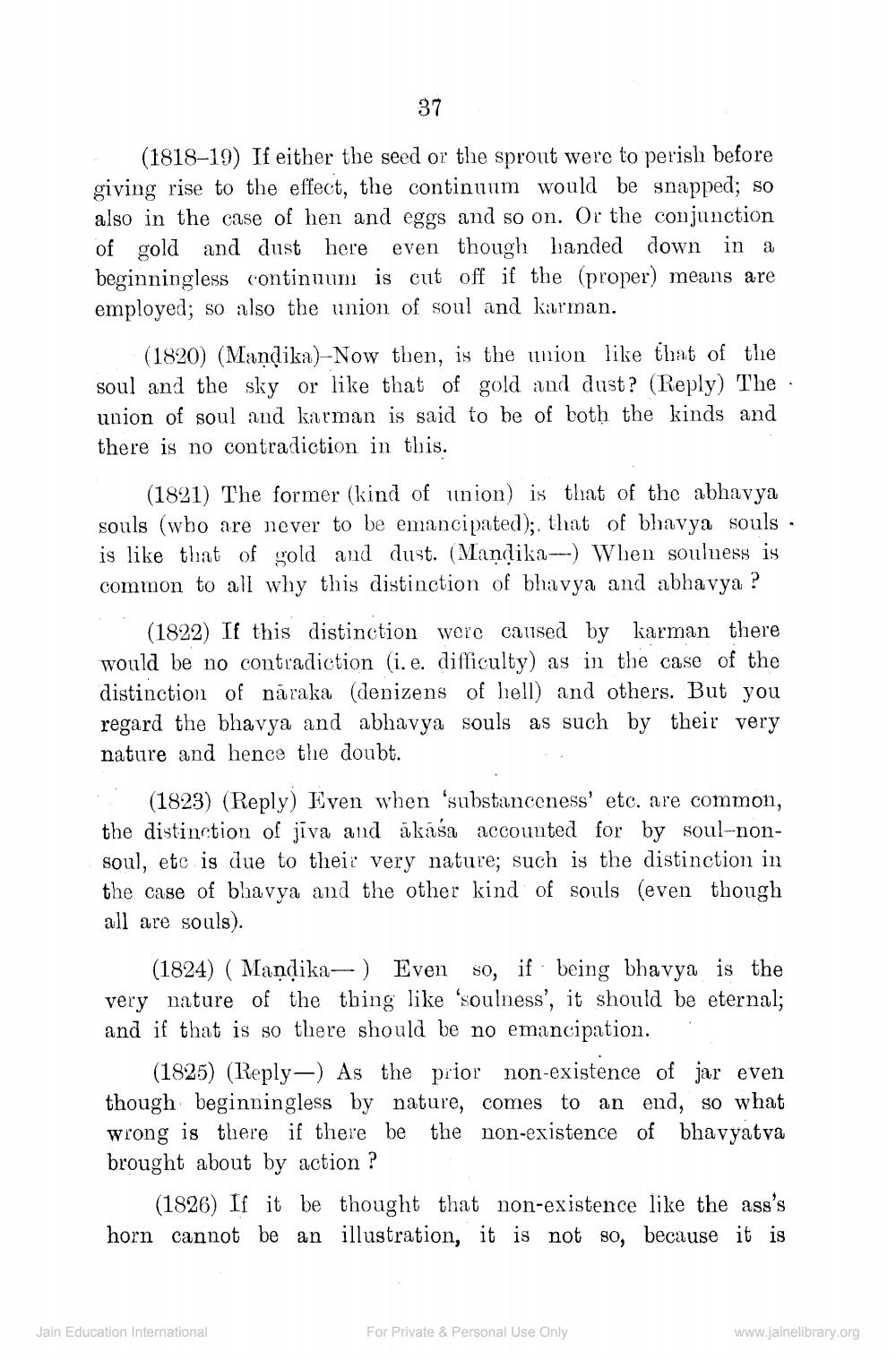________________
37
(1818-19) If either the seed or the sprout were to perish before giving rise to the effect, the continuum would be snapped; so also in the case of hen and eggs and so on. Or the conjunction of gold and dust here even though handed down in a beginningless continuum is cut off if the (proper) means are employed; so also the union of soul and karman.
(1820) (Mandika)-Now then, is the union like that of the soul and the sky or like that of gold and dust? (Reply) The union of soul and karman is said to be of both the kinds and there is no contradiction in this.
(1821) The former (kind of union) is that of the abhavya souls (who are never to be emancipated);. that of bhavya souls. is like that of gold and dust. (Mandika-) When soulness is common to all why this distinction of bhavya and abhavya?
(1822) If this distinction were caused by karman there would be no contradiction (i. e. difficulty) as in the case of the distinction of naraka (denizens of hell) and others. But you regard the bhavya and abhavya souls as such by their very nature and hence the doubt.
(1823) (Reply) Even when 'substanceness' etc. are common, the distinction of jiva and ākāśa accounted for by soul-nonsoul, etc is due to their very nature; such is the distinction in the case of bhavya and the other kind of souls (even though all are souls).
(1824) (Mandika-) Even so, if being bhavya is the very nature of the thing like 'soulness', it should be eternal; and if that is so there should be no emancipation.
(1825) (Reply) As the prior non-existence of jar even though beginningless by nature, comes to an end, so what wrong is there if there be the non-existence of bhavyatva brought about by action?
(1826) If it be thought that non-existence like the ass's horn cannot be an illustration, it is not so, because it is
Jain Education International
For Private & Personal Use Only
www.jainelibrary.org




